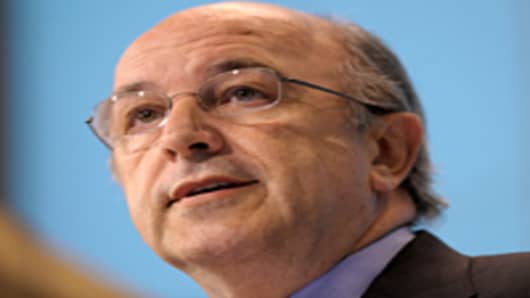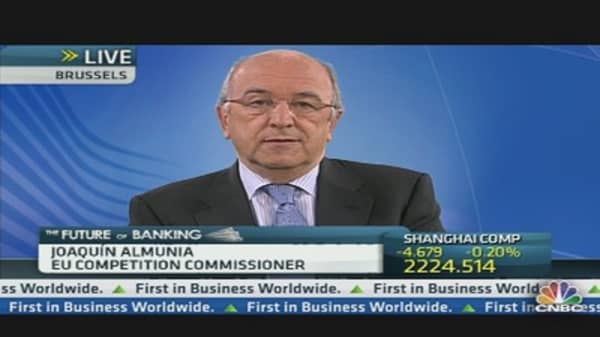The rate fixing scandal currently engulfing British bank Barclays will not stop at the UK’s borders but is likely to involve banks in a number of countries, Joaquín Almunia, EU Commissioner for Competition, told CNBC Wednesday.
His department launched an investigation last year into the practices of setting the Libor and Euribor – the European equivalent of Libor - rates.
The City of London has received increased criticism following a number of high-profile scandalsthat have taken place there with suggestions that the City operates a unique culture that may well promote under-hand trading practices.
“We established an anti-trust investigation last year. We had signals that some banks were developing collusive actions, illegal agreements according to competition rules and we started investigations about a group of banks not only British, other banks are also involved.
We hope that at the end of our investigation we will complement the investigation that belongs with the competition authorities,” he said.
The investigation is looking at whether there was a possible cartel in Euribor derivatives.
Bob Diamond, ex Chief Executive at Barclays faces a possible grilling by UK lawmakers when he faces a parliamentary hearing on the Libor scandal that has engulfed the bank later on Wednesday.
Barclays published a memo Tuesday which revealed that ex Chief Operating Officer Jerry del Missier understood that the government and Bank of England might approve if Libor rates were manipulated at the height of the banking crisis in 2008.
Almunia said that any criminal investigations lay with regulators.
In the UK, the Libor rate fixing scandal details have been forwarded to the Serious Fraud Office to determine any legal action that would need to be taken against individuals and organizations.
“It’s not an exclusive problem in the UK, unfortunately the financial crisis has shown that financial regulation was too weak but the UK markets are under the same regulations as the rest of the EU.
It’s not a question of the UK or continental Europe, I think the whole [of] the financial activities were badly regulated and badly supervised,” he said.
Almunia added that regulators across the globe needed to work together because the financial industry was now global, adding that Europeans should develop a single, common strategy.
Lagarde also warned that regulators will have to be a “little bit more intrusive and more inquisitive” after the Libor scandal.
“There are things happening that should not happen…despite the good will and despite the efforts and despite the quality of supervisors,” she said.




